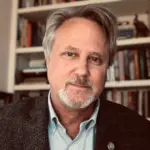Upcoming Panel Event: Perspectives on American Gun Violence
Perspectives on American Gun Violence: Finding New Synergies for Problem-Solving from Public Health, Public Policy, Crime Control, Economics, Justice, Advocacy, Politics, and the Media
Date: November 19, 2024
Time: 12pm - 1:30pm
Register Here
The epidemic of gun violence in the United States is a multifaceted problem that claimed nearly 47,000 lives in 2023, accounting for more than one million potential years of life lost. Firearm injuries and deaths touch countless others as well – from bereaved family members to affected communities suffering the collective loss and trauma of everyday gun violence. In a nation where private ownership of firearms is commonplace, culturally rooted, and constitutionally protected, efforts to prevent gun violence must balance public safety goals with individual rights and political considerations.
Broadened dialogue across fields is needed to identify tensions as well as areas of complementarity. By bringing together national experts and leaders to examine gun violence through alternative lenses, this discussion will help to foster innovative solutions and collaborations that can help mitigate the scourge of gun violence in America. Our goal is to move beyond isolated efforts and towards a more unified and impactful approach.
Sponsored by the Wilson Center for Science and Justice, the Duke Center for Firearms Law, and Duke Psychiatry and Behavioral Sciences.
Featuring

Kami Chavis, JD is the R. Hugh and Nolie Haynes Professor of Law and Director of the William & Mary Center of Criminal Justice Policy and Reform at William & Mary Law School. Professor Chavis writes in the areas of police and prosecutorial accountability, federal hate crimes legislation and enforcement, and racial profiling. Her research addresses the use of Cooperative Federalism principles and stakeholder participation to implement sustainable reforms in the criminal justice system. She was elected to the American Law Institute in 2012. Professor Chavis serves on the Steering Committee of the Consortium for Risk-Based Firearm Policy.

Philip J. Cook, PhD is ITT/Sanford Professor Emeritus of Public Policy and Professor Emeritus of Economics at Duke University. Professor Cook's research and scholarship has focused primarily on the economics of crime. His book (with Jens Ludwig), Gun Violence: The Real Costs, developed and applied a framework for assessing costs that is grounded in economic theory. His book (with Kristin A. Goss), The Gun Debate is intended for a general audience seeking an objective assessment of the myriad relevant issues surrounding gun violence in the United States. His latest book (with Anthony Braga) is Policing Gun Violence: Strategic Reforms for Our Most Pressing Crime Problem. Professor Cook was elected to membership in the National Academy of Medicine in 2001. He was awarded the prestigious Stockholm Prize in Criminology in 2020.

Joshua Horwitz, JD is the Dana Feitler Distinguished Professor of the Practice in Gun Violence Prevention and Advocacy and Co-Director of the Johns Hopkins Center for Gun Violence Solutions at the Johns Hopkins Bloomberg School of Public Health. Professor Horwitz is a nationally recognized leader and educator in the field of advocacy for evidence-based public policies and legal tools to prevent gun violence. His published work includes a book (with Casey Anderson) titled Guns, Democracy, and the Insurrectionist Idea. He is the founding Director of the Consortium for Risk-Based Firearm Policies, which developed the template for Extreme Risk Protection Orders.

Mark Rosenberg, MD, MPP is a board-certified physician in psychiatry, neurology, and internal medicine with training in public policy and infectious diseases. He was the Founding Director of the National Center for Injury Prevention and Control at the Centers for Disease Control and Prevention, where he oversaw gun violence research. He is the former President and CEO of Task Force for Global Health. Dr. Rosenberg served as Assistant Surgeon General and as Rear Admiral in the United States Public Health Service. He has served on the faculty at Morehouse School of Medicine, the Harvard School of Public Health, Emory University School of Medicine, and the Rollins School of Public Health at Emory University. He is a member of the National Academy of Medicine.

Sheryl Gay Stolberg is a veteran Washington Correspondent for The New York Times covering health policy. In more than two decades at The Times, she has served as a Congressional Correspondent; a White House Correspondent covering the administrations of George W. Bush and Barack Obama; and a national political features writer. Her current reporting focuses on the intersection of health policy and politics. Previously, at The Los Angeles Times, Ms. Stolberg shared in two Pulitzer Prizes won by that newspaper’s Metro staff. Ms. Stolberg is currently writing a book (Random House) on the history of politics in public health and the accelerating decline in trust in public health governance and its underlying science; her forthcoming work is tentatively titled Contagion of Trust: When the Culture Wars Came for Public Health

Moderated by Jeffrey Swanson, PhD, Professor in Psychiatry and Behavioral Sciences at Duke University School of Medicine. He is a Faculty Affiliate of the Wilson Center for Science and Justice at Duke Law School and the Center for Firearms Law at Duke Law School. Professor Swanson is a sociologist who collaborates across disciplines to build evidence for policies and laws to improve the lives of people with mental illnesses and to reduce gun violence and suicide. He serves on the Steering Committee of the Consortium for Risk-based Firearm Policy. He led the research group that conducted the first two state-level evaluations of Extreme Risk Protection Order laws.
